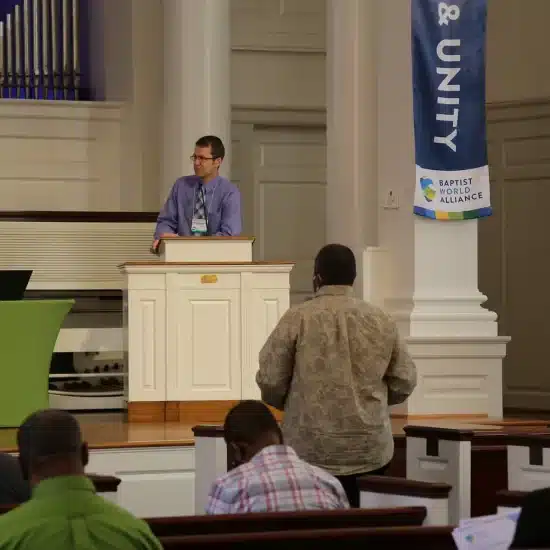James H. Fillmore Sr. wrote the lyrics and music for the hymn "I Am Resolved" in 1896. He originally wrote the music for the Convention of Christian Endeavor in San Francisco. By one account, 14 trains of attendees sang it on their way to the convention from Ohio.
Upon returning to Ohio, Fillmore asked a writer on his music company staff, Palmer Hartsough, to write new lyrics so the song could enjoy wider use. As the title suggests, this is a hymn of resolution, especially obvious in the first and fifth verses and the refrain:
I am resolved no longer to linger, Charmed by the world's delight, Things that are higher, things that are nobler, These have allured my sight.
I am resolved, and who will go with me? Come, friends, without delay, Taught by the Bible, led by the Spirit, We'll walk the heav'nly way.
Refrain: I will hasten to Him, hasten so glad and free; Jesus, greatest, highest, I will come to Thee.
Fillmore and Hartsough have doubtlessly inspired countless believers to set their personal self-improvement sights higher. They have inspired many to make New Year's resolutions with Christ at the center.
The regard of people toward New Year's resolutions is mixed, to be sure. Some make them; others don't. Some achieve their resolutions; others fail; many don't try. Many resolutions are perennial: lose weight, forsake a sedentary lifestyle, eliminate bad habits, develop a few good habits, etc.
We might all do better to lift our resolve to "Things that are higher" and "things that are nobler," as Hartsough wrote. Maybe our focus needs to be less inward and more outward. Perhaps we should resolve to become a part of efforts greater than ourselves and even tackle challenges at the local, national and global levels. For instance:
Help eliminate poverty, hunger
The prerequisite to such a resolution to help eliminate poverty and hunger is to be willing to recognize and acknowledge both. Sometimes the need is obvious — involving a neighbor, relative or perhaps a family identified by the church.
Recognizing human need is not automatic. We tend to condition ourselves not to spot unpleasant or depressing situations in the lives of others.
The key to a resolution like this is to stay informed about needs and how best to address them through local agencies, denominational entities, human-needs agencies and media at all levels.
Most ministries need volunteers and most need donations of supplies and/or cash. Globally, such ministries may engage in programs to help improve agricultural efforts, train adults to become self-sufficient, educate children or provide safe drinking water for whole communities.
Another appropriate response to such issues — especially on a national or global stage — is advocacy. Advocates keep issues in front of the population, and they nudge governments when appropriate. For instance, an effective Christian lobby for poverty and hunger issues is Bread for the World (www.bread.org). Among other things, Bread keeps constituents aware of pending legislation that has implications for the needy. It helps them know how and when to encourage lawmakers to act on needed legislation.
Fight for human rights
The topic of human rights is broad, but disclosure on a global basis is readily available. For instance, the U.S. government tracks religious persecution around the world and usually presses respective nations to address it. Parachurch groups also track specific examples of human rights violations, very often religious persecution.
Victims of human trafficking (particularly women and children), genocide and other human rights abuses need advocates who can express concern — even outrage — at their plight and can help mobilize others to join them in corrective efforts. Advocates stay informed, share information and press government leaders to exercise their influence to deal with abuses.
Volunteers sometimes have the opportunity to work directly with victims, such as those who have been displaced from their homes or who need medical care.
Unexpected benefits
Helping change the world one dollar, one act of kindness or one advocacy call at a time will impact people for good, even save lives. The above examples are only that; there are hundreds of other possibilities for such service.
The unexpected benefit is that the "resolver" stands to grow in compassion, generosity, stewardship, selflessness and other qualities of personal improvement.
Not everyone is easily motivated to take on the larger and broader issues of life. But Hartsough's lyrics help the believer at this point: "I will hasten to Him, hasten so glad and free; Jesus, greatest, highest, I will come to Thee" prompts the Christian to start at the heart of concern and aspire to the highest level of purposeful living.
"Taught by the Bible, led by the Spirit, We'll walk the heav'nly way" lends direction to the believer's life and helps ensure that one outcome of such significant acts of doing good will be that God is recognized and glorified.
Bill Webb is editor of Word&Way.





